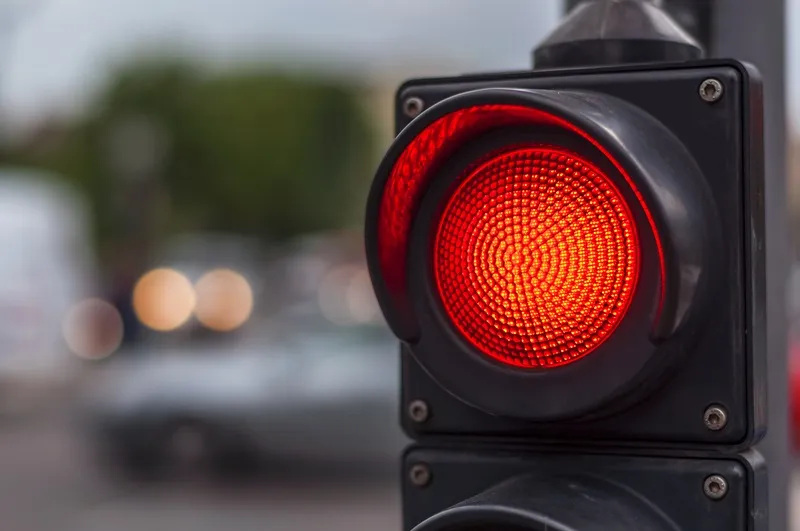West Palm Beach is to significantly expand its red-light camera program in 2013 after commissioners approved plans to install cameras at twenty-five new intersections, bringing the number of intersections equipped to catch drivers who illegally run red lights to thirty-two. The move comes despite a recent city police report that tracked five of the existing seven red-light cameras and found crashes nearly doubled in those locations between February 2011 and January 2013, to 66 from 36. Police Chief Vince De
January 23, 2013
Read time: 3 mins
West Palm Beach is to significantly expand its red-light camera program in 2013 after commissioners approved plans to install cameras at twenty-five new intersections, bringing the number of intersections equipped to catch drivers who illegally run red lights to thirty-two.
The move comes despite a recent city police report that tracked five of the existing seven red-light cameras and found crashes nearly doubled in those locations between February 2011 and January 2013, to 66 from 36.
Police Chief Vince Demasi said it is inconclusive whether red-light cameras have reduced the number of accidents in the city. He said city police will examine the system as it installs the new cameras over the next several months. Demasi said the cameras the city has in place “could’ve been better suited in different locations. I feel (the cameras) will have a positive impact on our traffic safety.” The cameras also will “relieve the necessity of assigning officers at these intersections, which is of great concern,” Demasi said.
Mayor Jeri Muoio said: “We’re really doing this for the right reason, which is safety.” The new locations “are in highly trafficked areas. Previously they were in locations which were not very highly trafficked, which was hard for us,” Muoio said.
In Fort Lauderdale, plans to expand red light cameras to an additional six intersections were approved; the city started with red-light cameras at six intersections in 2010 and has since added another eleven. Commissioners are to decide whether to place cameras at another eight intersections. The additional red-light cameras were approved as part of a new contract with17 American Traffic Solutions that will last until May 2016.
Commissioners did not approve the complete list of additional cameras, saying they were concerned about the number being added, how the cameras might impact tourism and they wanted to know if the red-light cameras were leading to fewer traffic accidents.
"From the data I've seen, from the majority of intersections, they are preventing intersection collisions," Commissioner Romney Rogers said Monday. "We ought to expand where appropriate. We're relying on the expertise of the company and our police department to advise us."
A recent survey by the Florida Department of Highway Safety and Motor Vehicles concluded there was a decrease in rear-end and side-impact crashes at intersections with red-light cameras. In addition, it said local agencies were reporting fewer total crashes, which officials partially attributed to drivers being more cautious at all intersections because they might have red-light cameras.
The move comes despite a recent city police report that tracked five of the existing seven red-light cameras and found crashes nearly doubled in those locations between February 2011 and January 2013, to 66 from 36.
Police Chief Vince Demasi said it is inconclusive whether red-light cameras have reduced the number of accidents in the city. He said city police will examine the system as it installs the new cameras over the next several months. Demasi said the cameras the city has in place “could’ve been better suited in different locations. I feel (the cameras) will have a positive impact on our traffic safety.” The cameras also will “relieve the necessity of assigning officers at these intersections, which is of great concern,” Demasi said.
Mayor Jeri Muoio said: “We’re really doing this for the right reason, which is safety.” The new locations “are in highly trafficked areas. Previously they were in locations which were not very highly trafficked, which was hard for us,” Muoio said.
In Fort Lauderdale, plans to expand red light cameras to an additional six intersections were approved; the city started with red-light cameras at six intersections in 2010 and has since added another eleven. Commissioners are to decide whether to place cameras at another eight intersections. The additional red-light cameras were approved as part of a new contract with
Commissioners did not approve the complete list of additional cameras, saying they were concerned about the number being added, how the cameras might impact tourism and they wanted to know if the red-light cameras were leading to fewer traffic accidents.
"From the data I've seen, from the majority of intersections, they are preventing intersection collisions," Commissioner Romney Rogers said Monday. "We ought to expand where appropriate. We're relying on the expertise of the company and our police department to advise us."
A recent survey by the Florida Department of Highway Safety and Motor Vehicles concluded there was a decrease in rear-end and side-impact crashes at intersections with red-light cameras. In addition, it said local agencies were reporting fewer total crashes, which officials partially attributed to drivers being more cautious at all intersections because they might have red-light cameras.










